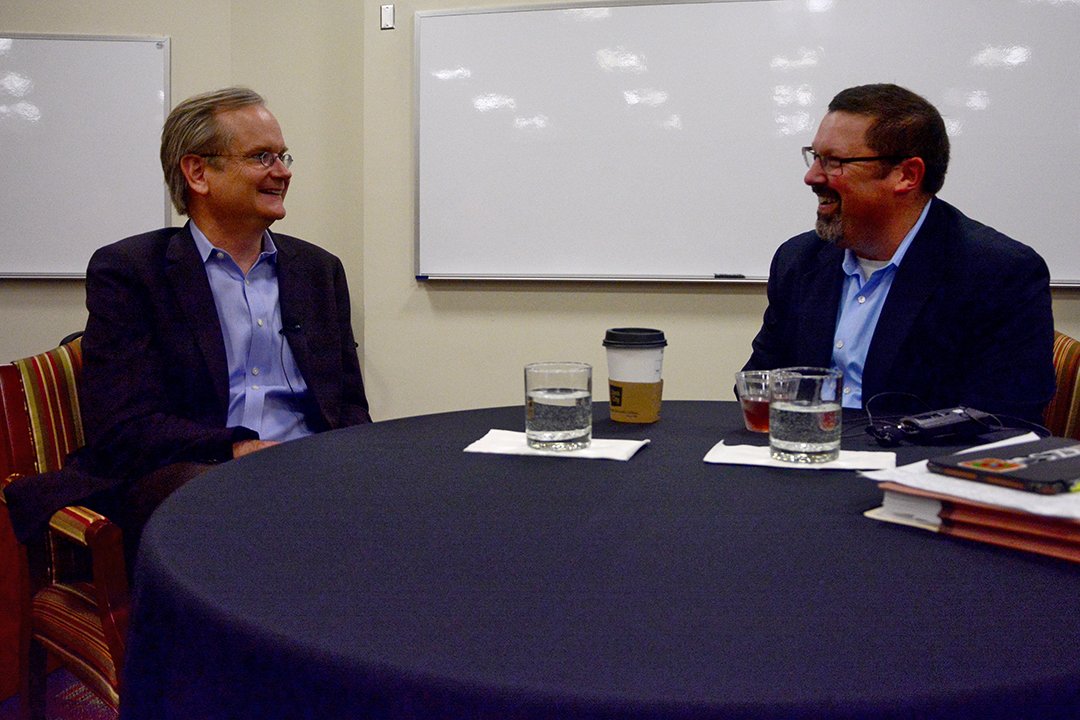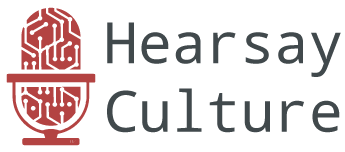For your Memorial Day weekend, I’m am amazed and humbled to post Hearsay Culture’s tenth anniversary show, # 254, recorded on April 26 and aired on KZSU on May 6, 2016, with Prof. Lawrence Lessig of Harvard University, reflecting on the past 10 years of Internet law and policy, and his current efforts to fix democracy. On a day when he was scheduled to fly to Washington, DC to pay a fine for having been arrested on Capitol Hill protesting the state of our campaign finance laws, Larry came to Elon Law and chatted with me for an hour in front of a live audience.

Larry and me hamming it up before the interview. Photo credit: Eric Townsend
We discussed a range of topics, including Larry’s assessment of his role in the Eldred copyright duration decision, his current proposals for addressing the crippling effects of our campaign finance laws on policymaking, his Presidential run, the parallels between the fix democracy movement and civil rights movement, and whether he considers himself an idealist. Along the way, Larry also shared advice both for parents and for aspiring lawyers; advice that has stuck with me, as a law professor with two young sons, since. Suffice to say, I’m grateful for Larry’s return to the show, and for taking time out of an unusually busy day to celebrate Hearsay Culture’s tenth anniversary!
Moreover, I should note that I thank lots of folks and entities during the interview, without whom Hearsay Culture would not be what it is today (starting with my wonderful listeners). I am grateful for your support, encouragement and collegiality, and look forward to another 10 (!) years! Enjoy; I dedicate this show to you!
Podcast: Play in new window | Download | Embed
Subscribe: RSS
